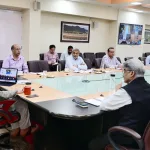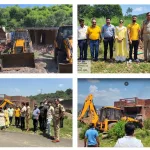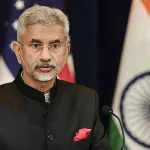In Kashmir, what we have observed in the recent past few years is nothing less than a revolution among the females of Kashmir. From darkness to dawn, from violence to rights, from injustice to justice, the present government—through women-specific policies—has brought Kashmiri women to the forefront, transforming and empowering them. By providing reservations, rights, scholarships, and much more, our women are now able to actively participate in the progress of society.
So then, the question is: are these rights being practiced by Kashmiri women? To what extent are these rights being enjoyed by them? Kashmiri women, after all, are different from women elsewhere. What needs to be done to implement and enforce these rights more vibrantly on the ground? Such questions still linger amid myths, and to address these sensitive issues, we need a social atmosphere that recognizes women—their potential and their problems.
For the smooth and proper implementation of women’s rights on the ground, we need awareness campaigns and effective execution of women-related policies. The unavoidable question is whether women are actually enjoying these rights within the family and society or not; whether she is able to fight for her rights or not; whether the rights for empowerment are being respected by the male section or not; whether any government machinery is looking into hidden injustices and discrimination towards females at home and outside or not; and whether women are working according to their capacities or not.
All this comes into question when it comes to practice—here, the story is quite different for the women of this society. The fault lies with the women themselves and not on the side of the government.
Firstly, there is a large section of women who are silently suffering from various problems under male dominance. These problems have never been addressed, nor have women been able to speak up for themselves. The male section has also never provided the opportunity to expose or discuss these issues. What we often observe are disputes between men and women, either before or after marriage are largely due to the violation of women’s rights.
There are many reasons that encourage such dominance. Most Kashmiri families still consider women to be weak, incompetent, and inefficient. This is a deep-rooted cultural legacy where women are expected to be submissive, obedient, and dependent. Even today, many Kashmiri families see wives as laborers meant to serve their husbands’ parents, something that is not even permitted by religion.
Therefore, the work of women’s emancipation and participation cannot be left to the male section alone; it must be led by women themselves, through awareness, support networks, skill development, family and community engagement, encouraging role models, and collaborating with NGOs. These efforts will help women build a foundation for spreading awareness among others, which will empower them to make decisions and work independently.
Secondly, women in Kashmir have been also the victim of suppression and she was not given a chance to represent herself during the violence in Kashmir from last thirty year. Now this legacy is still on and the scars inside girl child even from the parents is not visible and never exposed before the authorities. There are various restrictions which are not legal and genuine. There is still superiority and inferiority complex between girl and boy in the families. There are reasons due to which women are not independent, self-reliant
Thirdly, prioritizing family-related issues concerning girls and addressing hidden violence at home and domestic levels is the actual way forward toward the empowerment of women. Most domestic violence cases remain outside the public domain and are not reported to the concerned authorities.
There is immense pressure from male dominance to hide discrimination at home, even when girls have greater potential than boys. This issue is serious and has made the girl child a victim at many levels. There is no specific policy, and no policy can be effectively implemented against such forms of hidden violence and discrimination. Therefore, the home becomes the foundation of many evils and has contributed to the decay of our society. To keep our homes intact, we need self-awareness and consciousness.
Fourthly, there is a deliberate lack of awareness about the policies formulated for the empowerment of women. Women are often not even allowed to take advantage of schemes meant for them. The legacy of male dominance has remained unchanged. It is necessary that we include women in the social structure of life so they can address women-oriented issues and concerns.
We are lacking women doctors, engineers, pilots, scientists, and teachers, which has caused women to lag behind due to the unavailability of women-specific interventions. Society can establish groups of respectable female figures to address these issues at the village level through awareness, education, and by responding to cases of violence or discrimination.
So, the unsolved and hidden problems faced by Kashmiri women at homes is a serious concern. These issues deteriorate their emotional and psychological balance, preventing them from expressing their feelings, opinions, or even mental health struggles. There are cases of fear, family pressure, or social stigma, which in some families are considered as discipline or simply a family matter. Women are often denied a say in education, marriage, career, or financial matters, and they face challenges such as early or forced marriages, economic dependence and financial control, and social isolation.
There are various suggestions to overcome these problems. First is family-level awareness and counselling, conduct regular awareness sessions in villages and towns to educate families about women’s rights and mental health. Encourage family counselling through community centres or NGOs. Launch campaigns to educate women about their legal rights, helplines, and support mechanisms. Create local women’s committees (comprising teachers, ASHA workers, and social workers) to identify and report issues discreetly.
Provide accessible skill training programs for women, especially in rural areas, to boost their confidence and financial independence. Highlight and support successful Kashmiri women from different fields to inspire others and challenge stereotypes. Engage faith-based leaders to speak out against violence and injustice towards women from a moral and religious standpoint. Make helplines accessible and ensure anonymity and safety. Provide temporary shelters and legal aid for women facing abuse. Teach young boys and girls the values of equality, respect, and shared responsibilities from an early age.
(The author writes specifically on Kashmiri women’s rights and issues. She is also pursuing PhD in Gender Studies. Feedback at: [email protected])








